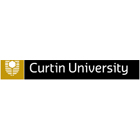Bachelor of Engineering (Honours) (Electrical and Computer Engineering)
Bachelor of Engineering (Honours) (Electrical and Computer Engineering)
Curtin’s Bachelor of Engineering (Honours) offers you an industry-connected education experience in which you will learn how to devise engineering solutions for complex societal and industry challenges. Your study will begin with the Engineering Foundation Year (EFY). You’ll learn the fundamental concepts and develop the required skills common to all…
Categories
COURSE DESCRIPTION
Curtin’s Bachelor of Engineering (Honours) offers you an industry-connected education experience in which you will learn how to devise engineering solutions for complex societal and industry challenges.
Your study will begin with the Engineering Foundation Year (EFY). You’ll learn the fundamental concepts and develop the required skills common to all areas of engineering – giving you the opportunity to explore our range of engineering disciplines before choosing the major that you’ll focus on from your second year.
What you’ll learn
Demonstrate a conceptual understanding of applied science, computing, and engineering.
Use underpinning science, engineering, and sustainability principles to solve complex social and industrial challenges.
Design and implement engineering solutions in a safe, ethical, legal, professional, and through respectful partnerships with local First Peoples and other diverse cultures as globally responsible citizens.
Assess the available scientific and engineering knowledge and undertake applied research in the broad engineering field.
Employ the technologies and knowledge to develop and communicate effective and innovative engineering solutions to complex problems.
Develop lifelong learning habits, teamwork and leadership abilities, and project management skills.
Develop the skills you need to extract minerals from underground or open-pit mines.
Gain comprehensive knowledge in electrical and electronic engineering and specialise in power systems, embedded systems or electronics and communications.
Rapid advances in electronic communication, the ‘internet of things’, and renewable and sustainable energy offer abundant career opportunities in electrical and computer engineering.
You’ll gain a thorough understanding of the concepts that underpin electrical and computer engineering, before choosing one of the specialisations below.
In your final year you’ll undertake a major research or design project and complete 12 weeks of professional practice.
- Power Systems
- Electronics and Communications
- Embedded Systems
What jobs can the Electrical and Computer Engineering lead to?
Careers
- Electrical engineer
- Electrical power engineer
- Electronics engineer
- Communications engineer
- Embedded systems engineer
- Medical systems engineer
- Network controller
- Power systems engineer
- Systems engineer
REQUIREMENTS
Students from different countries should have qualifications equivalent to Australian Year 12 and a scaled mark of at least 50 in English, Literature, or English as an Additional Language or Dialect.
IELTS (International English Language Testing System) – Listening, Reading, Writing, and Speaking – 6.0; Overall band score 6.0; TOEFL Score: 79 (overall); Reading 13; Listening 13; Speaking 18; Writing 21; Pearson Test of English – Listening, Reading, Writing, and Speaking – 50; Overall band score 58; TOEFL (Test of English as a Foreign Language) and PBT (Paper Based Test) – 570 and 4.5 in TWE; C1 Advanced Formerly known as Cambridge English: Advanced (CAE) 176 with 169 in Reading, Writing, Listening and Speaking. C2 Proficiency Formerly known as Cambridge English: Proficiency (CPE) 190 with 176 in Reading, Writing, Listening and Speaking.
EDUCATIONAL INSTITUTION
Curtin University is Western Australia’s largest and most culturally diverse university with Australia’s third largest international student population. Around 60,000 students from more than 130 countries study a Curtin degree, at locations including Perth, Margaret River, Kalgoorlie, Sydney, Malaysia and Singapore. Our cultural diversity adds a rich and valuable dimension to the campus atmosphere, preparing all graduates to live and work effectively in an increasingly global environment. We offer a range of industry-aligned undergraduate and postgraduate courses in business, humanities, health, engineering and related sciences. We also have a long-standing focus on Aboriginal and Torres Strait Islander education and culture, supported by our Centre for Aboriginal Studies.Curtin is widely recognised for its practical research that is focused on solving timely, real-world problems. In recent years our research activity has grown significantly, driving our rapid rise up the international university rankings.As a university that never settles, we will continue to develop existing partnerships and establish new ones in areas relevant to our research and teaching.




